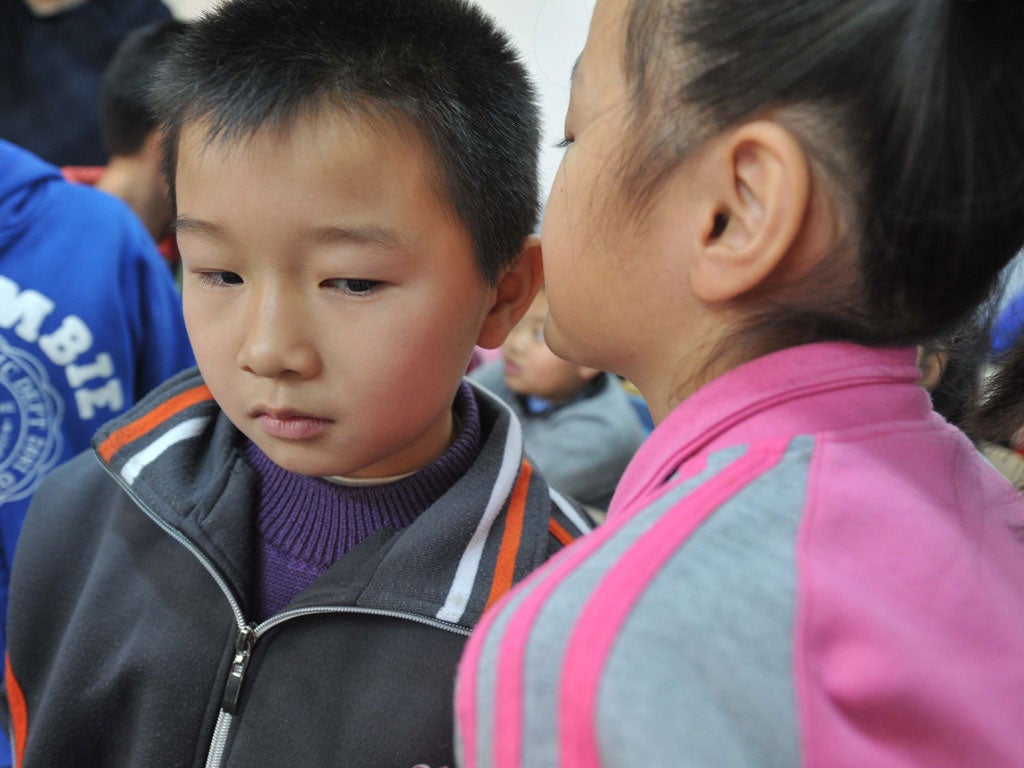Why we need to teach sexting in schools
Children rarely understand the full meaning of the words or images they're using

I was about eight when I first heard the f-word. Normally the girls played hopscotch, handstands and skipping in their own playground separated from the (footballing?) boys by a high wall. But on this occasion we were all in the boys’ playground for a PE lesson. Something upset my classmate Ian Collinson while we were getting ready to line up. "Oh f***k," he said to a little group of us.
Strange word, I thought, but something about the way he said it stopped me from going home and asking what it meant over tea that night. And I didn’t challenge Ian either. Instead I simply docketed it away. It was, of course, many years before I found out what it meant. My mother finally told me where babies come from when I was 11, but of course that wasn’t the verb she chose. And anyway – like ‘shit’ and other centuries-old ‘taboo’ words - it’s rarely used in its proper context.
Well, the innocence I remember from the Fifties and Sixties has long gone and, according to a just published teaching union survey, 38 per cent of teachers are now aware of their pupils sexting – sending explicit messages via mobile phones and other devices. And 40 per cent are aware that their pupils have viewed online pornography.
I wonder how much these children, many of them still in primary school, actually understand what they are saying and viewing? I was at a production of Taming of the Shrew last week at which 200 10-13 year olds encountered their first taste of abridged, very accessible Shakespeare courtesy of the RSC. Audience behaviour was, sadly, less than appropriate and the boys near me did a lot of shouting out whenever one character kissed or ventured near another. They were clearly showing off because they felt ill-at-ease and didn’t, in fact, understand some pretty fundamental things about human relationships – despite the noisy bravado.
And we’ve all heard children casually using ‘gay’ as an insult without fully realising the implication of what they’re saying. It’s desperately hurtful for anyone struggling to come to terms with sexuality whether or not the person the insult is being hurled at is in that position.
Children learn language – all sorts of language – from the adults around them and from media such as TV. These words are barely taboo anymore. You hear them bandied about continually in the street. Of course children are going to pick them up – and try them out – very young. You can’t put the genie back in the bottle.
So yes, I agree with those who want knowledge of these words explored in schools so that quite young children learn what they mean and how devastatingly offensive they can be. Knowledge is power and if more children were led to think more carefully about some of this language it might – just might – be possible to reduce its use. But you won’t do it by silly rules about what you’re allowed to say and what you’re not. And of course it needs to be done firmly, sensibly and integrally, not presented in some hyped-up Govian corner of the curriculum called ‘bad language.’
Even more worrying is the exposure of young children to pornography which conveys dangerously misleading impressions about relationships. And it is all over the internet. Every user occasionally stumbles across it unintentionally so it’s very easy indeed for anyone who is looking for it. Only this week, MP Stephen Barclay has expressed concerns about Google, which has pornographic images available in its bookstore, which is used by children.
Well, you won’t deter children by telling them not to look – forbidden fruit and all that. But you can draw attention to the dangers just as you tell them not to talk to strangers, get into unknown cars and so on. And I think teachers and parents should.
Meanwhile, it’s time we had some really stringent laws and policing to make the internet a much more salubrious place for all its users. I really don’t want to type in school discipline as I once did when researching an article and get …well you can imagine. I was just glad I wasn’t a 10 year old doing homework about Victorian schools.
If Ian Collinson is still around, I’d love to know how he feels about what his children and grandchildren might be exposed to?

Join our commenting forum
Join thought-provoking conversations, follow other Independent readers and see their replies